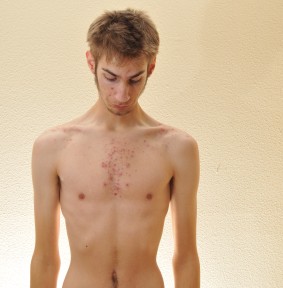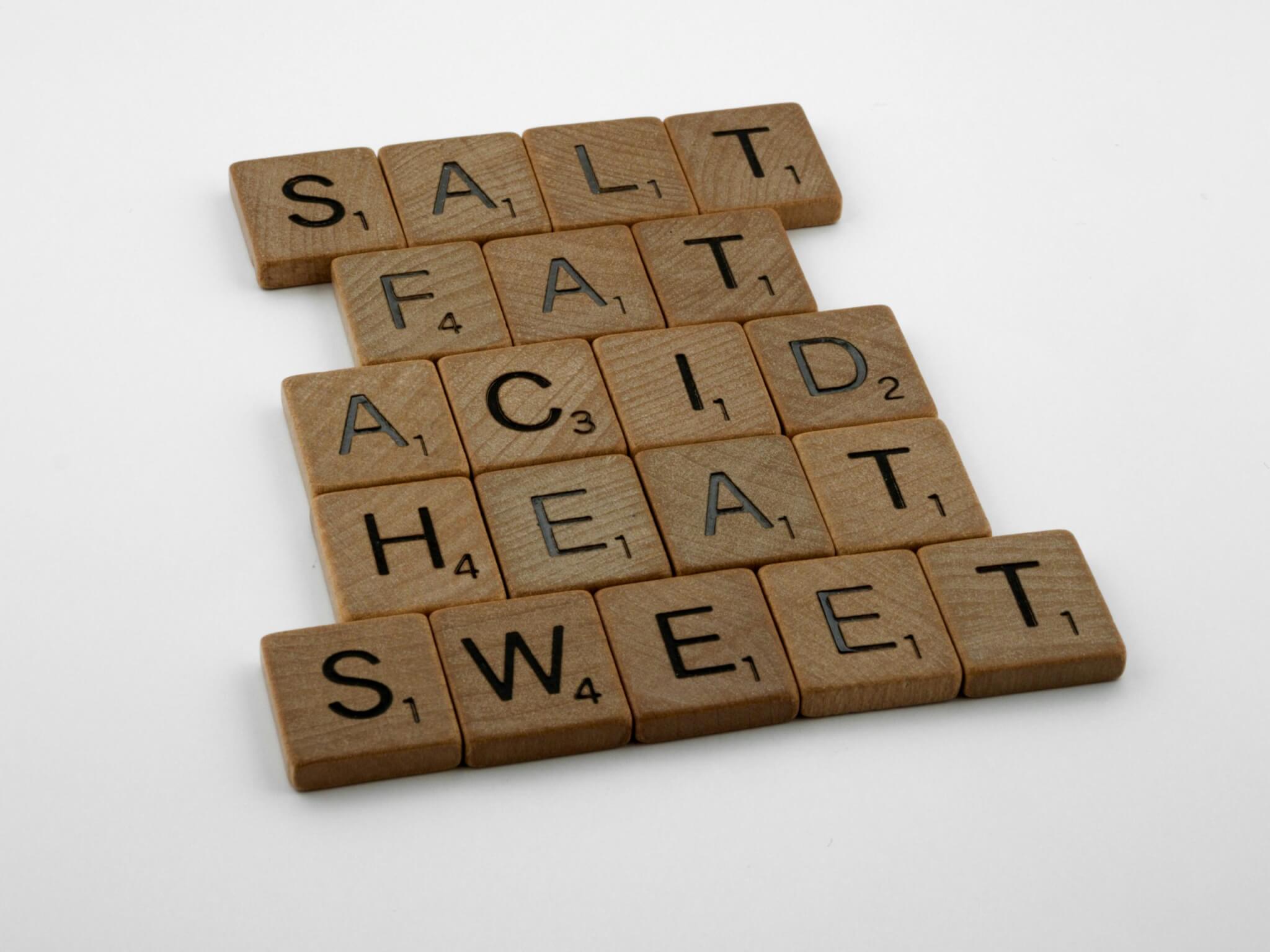I never feel full.
This was the complaint of one delegate on our obesity training. It led me to think about fullness, satisfaction, having enough (satiation) or not caring to eat another bite.
The sensation of fullness is not quite the same as satisfaction. Satiation is a problem for many people living with overweight. Satiation studies have identified people living with obesity who don’t feel as if they ate enough, and they get hungry faster too. Satiation may be identified by slowing up as an eating event proceeds. Some people just don’t seem to slow up. What can be going on?
We note that from birth, some children have an enhanced susceptibility to eating more, when food is present and according to their parent’s opinion, they are always asking for more food. According to the “Food Responsiveness Theory,” these children are at greater risk of weight gain in childhood and risk being overweight as adults. We suspect that maternal diet before conception and during pregnancy may have something to do with this.
Fullness, satisfaction and satiation result from an interplay between physical and psychological factors. The physical influences are a complex interaction between our genetic footprint, stomach and gut, appetitive neurochemistry and a range of neural structures in the brain, the hypothalamus and the opioid or reward centre in the brain.
A satiation response tends to be good in early life, it is barely possible to overfeed a breast-fed baby, they just turn away when they have had enough. Toddlers spit food out when sated unless we can entice them to eat a little more, usually by distracting them. From the age of 7, our innate ability to eat what we “need” becomes impaired, especially if we are in an environment where tasty food is on tap. Our Palaeolithic origins have designed us to eat a little more than we “need” because of the possibility of food shortages. The satiation response is always weaker than the hunger drive.
An eating disorder therapist needs to understand the biology of satiation after eating, that arises from sensory experiences in the Enteric Nervous System (mouth, oesophagus, stomach, liver, gut etc) together with the effect of the chemicals of digestion entering the body and the brain. During the process of feeding and digestion, several things can go wrong and I mention only a few of these.
The food itself
The food we eat can affect our ability to feel full. Books have been written about the poor satiation effects of foods containing UPF; so people can eat a lot of food and still feel hungry. I don’t want to repeat the evidence here, but it has become very difficult in our food environment to get food that is UPF-free. Even our cows and farmed fish are fed UPF which is passed to us when we eat their flesh, unless we are buying grass fed organic beef or wild fish.
Note that children eat less and are better nourished when they are given food that looks close to its source ( a fish rather than a fish finger) .
Malnourished
Many people who say that they never feel full have taken in a lot of calories but they are malnourished. Calories alone don’t create fullness, it is the nutrients that make a difference. The foods that contribute to satiation in the short term (fullness) and in the long-term (lower hunger levels) include good quality protein vitamins, and minerals from having a rainbow diet with plenty of fruit, veggies and Omega 3 fats. And while I am on the subject of fullness and diet, let’s not forget the importance of …
Fibre
It is hard to feel full on a diet lacking in fibre. You may feel temporarily stuffed on a plate of cornflakes, but compare the sensation after eating a bowl full of porridge oats with a handful of seeds thrown in. No contest.
Omega 3 Fats
Deficiencies in any nutrient can interfere with satiation but there is a particular place of importance for Omega 3 fats, ideally as fish oil. Omega 3 fats prime neurons throughout the brain to respond to the sensations and chemicals that inform that brain that sufficient nutrients are present. When the ratio of O6 to O3 fats in our diet is too high in favour of O6, there will be high levels of inflammation affecting the weight control and satiation centres in the hypothalamus. I wonder how many of our clients / eating disorder specialists are aware of this.
The mouth
Mouth-feel of food can affect how satiating it is. Adding a spoon-full of olive oil to a salad makes it feel more satisfying and therefore more “filling”. Rats who get mouthfuls of food that doesn’t reach the stomach (surgical diversion) stop eating after a while, but they start wanting food again sooner.
The stomach
Fullness of the stomach contributes partially to the sensation of “enough”. We have stretch receptors, mostly in the lower pouch of the stomach (fundus) that send fullness signals through the vagal nerve to the brain, switching off the neurochemicals that make us hungry.
Years of overeating or binge eating can downregulate the stretch receptors so that the fullness signals become weak .
People with a gastric band continue to feel hungry because the small pouch receiving food is at the top of the stomach. The fundus where the stretch receptors are located just don’t get the signals that can stop us from feeling contentedly full.
The gut
The gut contains sensory receptors. When stimulated by the passage of food, they produce peptides such as Pyy3-36 that, when activated by the passage of food, suppress appetite neurochemicals in the brain.
Speed of eating and distraction
We have known for decades that eating fast and mindlessly increases the amount of food we want to eat before we register that we have had enough. Slowing down gives our brain and body a chance to register the nutrient delivery of food. Eating fast also weakens the stretch receptors in the stomach and if that isn’t enough, fast eating impairs the production of a “fullness hormone” produced in the small intestine, namely CCK. . Want to feel full? Slow your eating doooooown.
Distraction also plays a part in stopping people from registering their satiation. The Health psychologist Jane Wardle showed us that people who eat with food on their knees while watching TV managed to polish off 3 times as much snack food in the afternoon following their meal, compared to people who ate at a table just talking to each other.
The Hypothalamus
This is an organ deep in the brain that acts like a thermostat for our appetite and body weight. I will not try to do justice in this short article to the neural concomitants of satiation. AS far as appetite and weight control is concerned, the hypothalamus responds to leptin signals that come from fat cells. If leptin levels are high, the hypothalamus adjusts our nervous system to burn more energy and switches off our appetite.
Sadly, years of eating “the wrong kind of food” or overeating can deafen the hypothalamus to leptin signals. The culprit here is insulin – a hormone that we unwittingly overproduce when eating an unhealthful diet. Hypothalamic deafness to leptin means that no matter how much fat we carry, we continue to be hungry. Many people in large bodies we see eating large amounts of food have lost their hypothalamic “off-switch.”
A history of calorie reduced dieting
Dieting leads us to attend to what we “should” eat rather than attend to the natural signals of hunger and satiation. We also tend to eat less than we need to lose “fat”. When we stop attending to our natural appetite, that is mistrusted, we stop knowing how and when we are full. Our eating will become permanently disinhibited (eating in for all sorts of reasons) and dysregulated (eating past the point of fullness).
The Reward (Opioid) centres of the brain
Eating satiation is also affected by how rewarding the eating experience is. Pleasure and satisfaction from an eating event contributes to fullness and not wanting to eat more. Years of eating high-fat-sugary foods leads to a dulling of the dopamine receptors that make eating a nice-good-enough-for-now experience. Binge eaters are often chasing the dopamine high that they find works less well for them, and they would find giving up binge eating difficult since normal eating doesn’t satisfy them anymore. If your opioid system isn’t doing its job, you may feel full or even nauseous, but you will keep needing to carry on eating.
Psychological Factors
The Eyes
We evaluate with our eyes in many cases how satisfying a meal or snack is likely to be. People who are blindfolded eat in some cases 50% less of a meal than if their eyes had been open. In many cases we need less than we think will sate our appetite and delay future hunger. I am not recommending that we all eat on smaller plates, but we need to find a way to stop our eyes from telling us when its OK to stop eating.
Interoception
Interoception is the psychological ability to sense what is going on in the body. Many people with eating disorders and obesity who claim that they are never full, lack interoception and they have no idea when they are full. (and in the case of anorexia they may not know that they are hungry). Interoception is both intrinsic and it is a skill that is lost because of many things, including trauma. In therapy for obesity (and eating disorders) it is important to teach interoception. It is a simple but important skill, leading to better awareness of appetite, fullness and emotions.
Old habits die hard
Eating habits formed during the lifespan are affected by a huge range of influences regarding the amount or type of food we choose to eat. One example might be getting a needed emotional reward for clearing your plate when you are a child. In this way, the child becomes attuned to what they want to get rather than what their body says they need. Obesity therapists need to look carefully at the habits a person has formed. Might the explanation of why their client never feels full lie here?
Stress
The effects of psychological stress on the ability to “feel full” are variable. Stress may lead to fast or distracted eating or give some people tummy upsets and IBS. Obesity therapy must address stress as part of a treatment package that is designed to foster health behaviour change.
The eating Gestalt
Satisfaction and satiation after with any eating event depends on the eating event itself. Small things like sitting down at a table in a nice environment with nice tableware can contribute to psychological satisfaction as well as physiological satiation. People who eat on the run, in a car or in a haphazard way tend not to feel full, or the satisfaction is transient.
Conclusion
If you have a client who says that they never feel full, many things are going on. You may have to attend to all the things that I have listed as possible problems.
Perhaps begin with interoceptive awareness training and nutritional rehab. Ensure that the diet is as nutrient dense as possible with plenty of fibre and Omega 3 in the form of oily fish. Make sure that the client begins eating slowly and without distractions. Above all, ensure that for a while there is no alcohol because booze muddles the appetite pathways.
There is no shortcut to restoring the ability to feel full on moderate amounts of food. Obesity therapy is a long slog, and the client deserves to give themselves the time to change.










